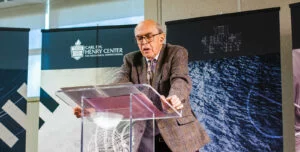 The question has been purposefully left rather vague, but of course the answer will depend on what is meant by the relevant terms. Language can be surprisingly tricky, and while dictionary definitions might act as a guide, they really only reflect how people use words—which changes over time (consider “guy” or “gay” or “literally”).
The question has been purposefully left rather vague, but of course the answer will depend on what is meant by the relevant terms. Language can be surprisingly tricky, and while dictionary definitions might act as a guide, they really only reflect how people use words—which changes over time (consider “guy” or “gay” or “literally”).
Particularly for a topic that is under development, there needs to be some care taken to ensure we are using them consistently. So to answer the question, I’ll work through the relevant terms in the question, attempting to clarify them and show the range of options that appear to be available to us.
Evolutionary Creationism
There is no official governing body of evolutionary creationists (ECs) that definitively articulates and regulates what all ECs believe. I work for BioLogos, one of the more well-known organizations that identifies as EC, but we don’t speak for all ECs. Furthermore, we don’t have an official organizational answer in our statements of belief to the question of whether divine action is detectable. (We affirm miracles and reject deism, but those don’t quite give a definitive answer to the question as posed.)
The more common term historically for our position has been theistic evolution. That seems to commit you to two things: there is a God, and evolution happened. We ECs typically hold to a more particular understanding of theology within the Christian tradition: we are not just theists, but Christian Trinitarians. And we believe that all things were “created” through Christ (Colossians 1 and John 1)—hence our willing acceptance of the sometimes pejorative “creationist” label. Beyond this, there is considerable diversity of theological beliefs among those who identify as ECs.
As for the modifier “evolutionary,” there is also diversity among ECs about what the science says. Here ECs have typically thought the lowest common denominator should be common ancestry. That is, in order to count as an EC, you ought to at least affirm that all life forms on Earth (including human beings) are related through common ancestors. Beyond that, scientists disagree on the mechanisms of evolution and their relative importance. Anti-evolution groups have attempted to leverage such disagreements to claim that evolution is a theory in crisis. That is massively misinformed at best (and I hesitate to suggest what it might be at worst). It has long been known that the change in phenotype (observable characteristics that, among other things, contribute to an organism’s survivability and reproductive success) from one generation to the next is not completely due to random genetic mutations. The debate among scientists is how much other factors contribute and how they should be understood.The article, “The Changing Face of Evolutionary Theory” by Michael Burdett summarizes the debate among evolutionary biologists. You will find a range of positions among ECs in this debate, but not questioning common ancestry.
Allow
The next term we need to consider from the question posed is “allow.” Presumably this means “is consistent with” and is distinct from “must accept” or “must reject.”The former logic professor in me can’t help noting that the relationship “must accept” is actually a subset of “is consistent with.” If EC logically requires a certain proposition P, then of course EC allows for that P. But it does not work the other way: not all Ps allowed by EC are required by EC. And it seems a little funny to say something like “EC allows for common ancestry”, so I’ll understand “allows for” in this context to mean “is consistent with, but does not require.” So this gives us three general categories for the possible relationships between a broader explanatory system like EC and a more specific position. Here are some specific positions I think exemplify each of these relationships for EC:
- EC requires common ancestry.
As I’ve described EC, it requires the acceptance of common ancestry. If you don’t affirm common ancestry, then you can’t be an EC. - EC is incompatible with a young earth (~10,000 years).
The science of evolutionary theory is incompatible with that timescale, and since ECs accept that science, we could not logically accept a young earth. - EC allows for (but does not require) a historical Adam and Eve.
There are some ECs who believe that Adam and Eve were real people who served as representatives for all of humanity, and other ECs who believe that Adam and Eve are literary characters (like the Prodigal Son) and do not name any actual individuals in human history. BioLogos neither requires nor rejects a historical Adam and Eve, and aims instead to foster constructive dialogue.See our Common Question, Were Adam and Eve historical figures? for an overview of the options people in our community see.
So we have these three logical relationships, and we might consider the original question to reduce to whether the logical relationship between “detectable divine intervention” and EC is the same as (1) common ancestry (required), or (2) a young earth (rejected), or (3) historical Adam and Eve (allowed-but-not-required).
With that preliminary work out of the way, we must now consider the real meat of the question.
Detectable Divine Intervention
What is meant by “detectable divine intervention” (DDI)? I’ll claim there are ways of understanding DDI that can have it fit into each of the three logical relationships with EC.
(1) Does DDI just mean that we can witness miracles? That seems to be a legitimate understanding of the terms, and if that is what was meant by the question, then I’d say it is not just allowed, but required by EC. For example, the resurrection of Jesus was a miracle; and it was witnessed by many people. So because it is an ineliminable part of Christian Trinitarianism, I’d say it is required by EC and any other explanatory system that aims to be robustly Christian. I suspect, though, that most people involved in the origins dialogue mean something different.
(2) Since the scientific revolution many people have understood the universe to be a giant clock-like mechanism that runs according to strict laws. On this view, an intervention means that God steps into that otherwise mechanistic system and breaks the laws.If there are numerous interventions that supposedly keep God involved, then we have to wonder why the system was created to need all those in the first place; if there are relatively few interventions, then we have a God who tinkers occasionally, but otherwise just watches. Such an intervention can be detected when we discover features of the natural world that could not have come about by following the natural laws. So DDI here means something like supernatural violations of laws resulting in features we can discover and determine to be otherwise impossible.
I have concerns with this understanding of DDI which stem not so much from my understanding of science as from theology and philosophy. A mechanistic universe raises the specter of deism (which of course developed along with the clock-like universe idea) according to which God created matter/energy and established laws, then sat back and now just watches it go. If there are numerous interventions that supposedly keep God involved, then we have to wonder why the system was created to need all those in the first place; if there are relatively few interventions, then we have a God who tinkers occasionally, but otherwise just watches (in the words of Aubrey Moore, “occasional intervention implies as its correlative a theory of ordinary absence”).
Furthermore, the conception of “law of nature” on this view seems problematic (though admittedly not all ECs share my concern here). Applying “law” to nature was also an invention of the scientific revolution, and it contributed to the rise of the mechanistic understanding of the universe (replacing a more organic view which had held sway since Aristotle). It also suggests that we’ve discovered prescriptive laws of nature as opposed to us formulating laws that describe nature and are subject to further revision (I think the latter is more defensible).
Finally, “detection” on this view of DDI necessitates a fair amount of hubris on our part, because we have to claim that we know the laws so comprehensively and in such detail that we can determine things couldn’t have gotten that way through ordinary means. So instead of admitting a gap in our knowledge about how things work, we confidently claim that the gap is due to an intervention. Intelligent Design supporters vehemently resist this attribution of God of the gaps reasoning, but the examples they bring up have been susceptible to this kind of overreaching.
I don’t think this view of DDI is incompatible with the science of evolution, but I do think it sits very uncomfortably (if not inconsistently) with the Christian Trinitarianism that rejects deism. So I’ll say this version of DDI should not be allowed by EC.Rejecting this understanding of DDI that is often associated with Intelligent Design does not mean that I (or other ECs) reject the concept of design. Just as it can be consistent to affirm both “God created” and “things evolved” so too it can be consistent to affirm “God designed” and “things evolved.”
(3) We might understand divine intervention simply as the claim that God does things in the world. God is constantly involved with his creation, sometimes wondrously (like the resurrection), sometimes more ordinarily (like providing food for the birds). I think these could count as “interventions” because if God does not act in these ways, Jesus wouldn’t have resurrected and the birds would starve.
But the actions attributed to God in these examples (and many others) are not what you would typically find in scientific discourse. God creates, sustains, provides, saves, loves, judges, etc.—all of which have effects on the created order.God is constantly involved with his creation, sometimes wondrously (like the resurrection), sometimes more ordinarily (like providing food for the birds). But these are the actions of a personal agent, not the kind of impersonal forces detected by the natural sciences. So when we attempt to “detect” God’s actions, science is not the proper tool.I’m relying on the intuitive difference between scientific and personal explanations like Polkinghorne points to in the different explanations for why a tea kettle is boiling: 1) electrons flowed through the heating element, exciting the molecules until the vapor pressure of the liquid exceeded that of the surrounding area; 2) I wanted a cup of tea.
That doesn’t mean they are undetectable; I believe God has created all things, so when I see lava pouring out into the Pacific from Kilauea, I see it as God continuing to create the land. When I saw the ultrasounds of my kids before they were born, I saw them as God knitting them together in their mother’s womb.
These kinds of observations are definitely theory-laden (to use Thomas Kuhn’s terminology), so to see nature this way involves interpretation rather than a view from nowhere (to use Thomas Nagel’s terminology). But this is parallel to the claim that we don’t just read Scripture, we interpret Scripture. And it doesn’t at all mean that any interpretation is just as good as any other. In the same way we don’t just see the natural order; we Christians see it as God’s creation and as such we see evidence there of God’s activity and intervention. Other people without that commitment do not have to see it as such. (But we believe we properly see it as such.)
If this is what is meant by DDI, then I will say that it is allowed by evolutionary creation. You don’t have to accept this way of seeing things, but I think it solves the most problems and is consistent with both the science of evolution and Christian Trinitarianism.







Comments
Be the first one to make a comment!